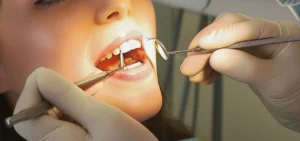Maintaining a healthy smile goes beyond brushing and flossing—it also involves incorporating habits like mouth rinsing into your daily routine. Among these habits, rinsing your mouth with water after consuming staining foods or beverages is a simple yet effective practice that can have significant benefits for your oral health.
In this comprehensive guide, we’ll explore the importance of rinsing your mouth, why it should be done, how it works, its effects, and alternative methods for neutralizing pH levels.

The Importance of Rinsing Your Mouth:
Rinsing your mouth with water after eating or drinking can help to remove food particles, bacteria, and acids from the surfaces of your teeth and along the gumline. This simple act can help to prevent plaque buildup, reduce the risk of tooth decay and gum disease, and maintain overall oral hygiene.
Why Rinse Your Mouth?
After consuming staining foods or beverages such as coffee, tea, red wine, or dark-colored sauces, rinsing your mouth with water can help to wash away pigments and acids that may adhere to the enamel of your teeth. This can help to minimize staining and reduce the risk of enamel erosion, keeping your smile bright and healthy.
How Does Mouth Rinsing Work?
Mouth rinsing works by physically flushing out debris, bacteria, and acids from the mouth, helping to maintain a clean and balanced oral environment. When you rinse your mouth with water, you dilute the concentration of acids and sugars in your mouth, reducing their harmful effects on your teeth and gums.
The Effects of Mouth Rinsing:

Removal of Debris:
Rinsing your mouth helps to remove food particles, bacteria, and plaque from the surfaces of your teeth and along the gumline, reducing the risk of tooth decay and gum disease.
Neutralization of Acids:
Rinsing your mouth with water can help to neutralize acids that may be present in your mouth after consuming acidic or sugary foods and beverages. This can help to prevent enamel erosion and reduce the risk of tooth sensitivity.
Hydration:
Rinsing your mouth with water helps to keep your mouth hydrated and moist, preventing dry mouth and promoting saliva production. Saliva plays a crucial role in maintaining oral health by washing away food particles and bacteria, neutralizing acids, and remineralizing the enamel.
Alternative Methods for Neutralizing pH Levels:
In addition to rinsing your mouth with water, there are other methods you can use to neutralize pH levels and maintain a healthy oral environment:

Chewing Sugar-Free Gum:
Chewing sugar-free gum stimulates saliva production, which can help to neutralize acids and wash away food particles and bacteria.
Consuming Dairy Products:
Dairy products such as milk, cheese, and yogurt are rich in calcium and phosphate, which can help to neutralize acids and strengthen tooth enamel.
Using Antacids:
If you suffer from acid reflux or heartburn, antacids can help to neutralize stomach acid and reduce its harmful effects on your teeth and gums.
Avoiding Acidic Foods and Beverages:
Limiting your intake of acidic or sugary foods and beverages can help to reduce the acidity of your saliva and minimize the risk of enamel erosion and tooth decay.
In conclusion, rinsing your mouth with water is a simple yet effective way to maintain oral hygiene and protect your smile from staining and decay. By incorporating this habit into your daily routine and exploring alternative methods for neutralizing pH levels, you can enjoy a bright, healthy smile for years to come. For personalized advice on maintaining optimal oral health, schedule a consultation with Dr. Veners today. Your smile deserves the best care!






